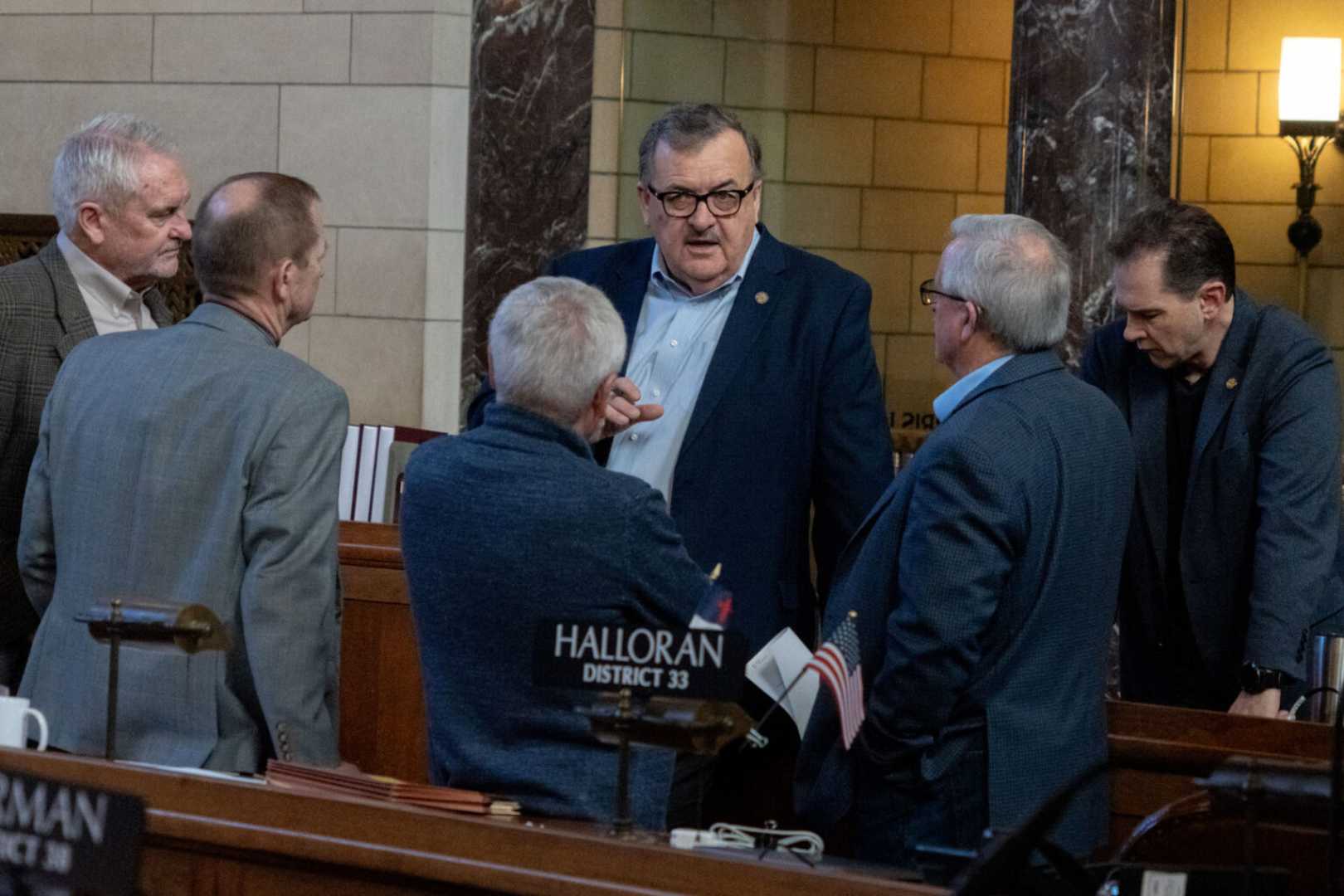Politics
Nebraska Lawmakers Debate Filibuster Rule Changes Amid Rural-Urban Divide

LINCOLN, Neb. — Nebraska lawmakers are grappling with proposed changes to the state’s filibuster rules, a move that could reshape legislative dynamics and impact conservative priorities. The debate, centered on whether to lower the threshold needed to end debate, has highlighted tensions between rural and urban interests rather than partisan divides.
Currently, ending a filibuster in Nebraska’s 49-member Legislature requires a two-thirds majority, or 33 votes. The Nebraska Republican Party has made changing this rule a top priority for the 2024 legislative session, arguing it would streamline the passage of conservative legislation. However, some lawmakers warn that altering the rules could undermine rural representation and backfire on future legislative efforts.
“Minority rights can run the gamut of who they represent. … That kind of minority might protect us at some point, and we’ve got to defend that,” said State Sen. Jana Hughes of Seward. State Sen. Mike Jacobson of North Platte echoed this sentiment, noting that “who’s in the minority depends upon the topic.”
The Nebraska Legislature is officially nonpartisan, but nearly all members are registered Republicans or Democrats. Republicans hold a significant majority, with 32 seats, but internal divisions have complicated efforts to pass conservative priorities. Eric Underwood, chair of the Nebraska Republican Party, has expressed frustration with some conservative lawmakers who have resisted rule changes, calling it “worrisome and sad.”
State Sens. Kathleen Kauth of Omaha and Loren Lippincott of Central City have proposed separate changes to the filibuster rules. Kauth’s plan would adjust the cloture threshold based on the number of senators present and voting, excluding those who are “present, not voting.” Lippincott’s proposal would lower the cloture threshold to 30 votes, or three-fifths of the Legislature, matching the votes needed to override a governor’s veto.
The push for rule changes follows a record-breaking 2023 session, during which senators filed 78 cloture motions, including 58 in a single year. In March 2023, Democratic State Sens. Machaela Cavanaugh of Omaha and Danielle Conrad of Lincoln, along with nonpartisan progressive Megan Hunt, filed 742 filibuster motions in one day to protest Legislative Bill 574, which imposed restrictions on transgender healthcare for minors.
State Sen. Wendy DeBoer of Omaha, a Democrat and vice chair of the Rules Committee, emphasized that the rules should not be viewed through a partisan lens. “Everybody’s a minority in that body at some point,” she said, pointing to the rural-urban and ideological divides that shape legislative debates.
Supporters of the current rules argue they protect minority voices and ensure thorough debate. State Sen. Dave Murman of Glenvil, who represents a largely agricultural district, expressed concern that lowering the cloture threshold could weaken rural influence. “Other than that situation, I would say I’d be in favor of making it easier to pass legislation,” Murman said.
State Sen. Teresa Ibach of Sumner, a member of the Rules Committee, suggested that Kauth’s sliding-scale proposal could be a reasonable compromise. “A senator being ‘present, not voting’ is a conscious decision that shouldn’t affect a bill’s fate,” Ibach said.
Opponents of the changes, including State Sen. Danielle Conrad, argue that the current rules foster thoughtful deliberation. “There’s never a rules fight when people are bringing forward thoughtful legislation,” Conrad said. “There’s a rules fight when senators bring forward divisive measures.”
The Rules Committee is expected to continue deliberations on the proposed changes this week, with debate on the floor scheduled to begin Wednesday. No matter the outcome, State Sen. Machaela Cavanaugh vowed to continue using the rules as they stand. “I’ve always played by the rules, whatever those rules are,” she said. “I plan on continuing to play by the rules.”












